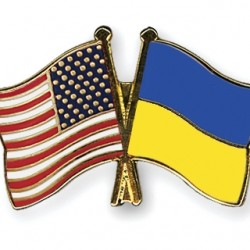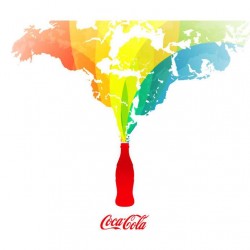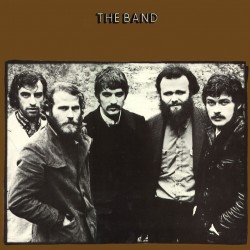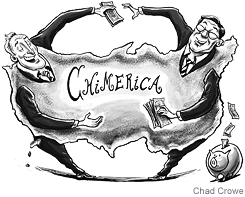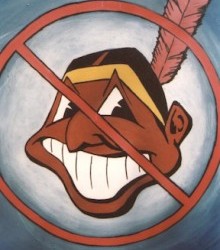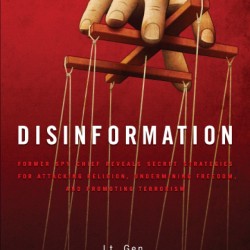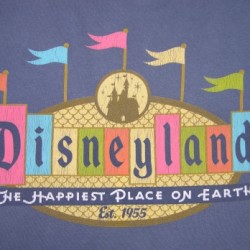Professor Ted Goossen of York University has generously allowed us to share his forthcoming essay, "The View from Outside: Canadians Sing America." It will appear in Get Away From Me: American Culture in Canadian Pop Music, to be published next year out of Sophia University Press, Tokyo.
* The essay is reproduced below (for a better formatted version, see the archived version: https://www.theiramerica.org/the-view-from-outside-canadians-sing-america-by-ted-goossen/)
The View from Outside: Canadians Sing America
by Prof. Ted Goossen, York University
Much has been written about the influence of the United States on Canada; yet almost nothing has been written on the extent to which Canadians have influenced the United States, and Americans’ view of themselves (1). Part of the reason for this is that the population and economy of the U.S. is ten times larger, which has led enterprising Canadians to sojourn south of the border in search of fame and fortune, and filled Canadian airways with America radio and TV programming. Such a one-sided relationship is not unfamiliar to people who live in Japan, of course, who themselves have been inundated by successive waves of American popular culture since the 1950s. Indeed, one of the things that a Japanese and a Canadian share is the presence of a tiny American lurking in the corner of his or her mind, a figure who calls into question the whole issue of cultural and even political independence. Canadians and Japanese alike have been partially shaped by their complicated, often conflicting attitudes toward that tiny American, it seems, whereas Americans are largely ignorant of, or indifferent to, how the peoples of Canada and Japan see them.
Luckily for Japan, it has its own language! In English Canada, however, linguistic similarity makes American influence even more threatening. There are, by the way, a few distinctive elements in “Canadian English”: in the spoken language, there is the use of the interjection “eh,” for example, and the Canadian pronunciation of the syllable “out,” which sounds like “oot” to an American ear; while in the written language the use of British spelling (colour instead of color, centre instead of center, etc.) is a relatively trivial and insignificant difference. Other than these minor and—for those Canadians who wish to blend into the American system—easily correctible variations, the languages are virtually identical, apart from the Gaelic-influenced accents that one can find in Maritime provinces like Nova Scotia and Newfoundland. French Canada is more like Japan, protected to a degree from the long arm of American cultural influence by a linguistic wall of difference, while English Canada, by contrast, is almost defenseless against the constant barrage of ads and programming launched across the border by American media who staunchly defend their right to pursue their business free from “Canadian protectionism.” (2)
Looked at from the opposite angle, however, another kind of picture emerges. Indeed, the very “invisibility” of English-speaking Canadians has enabled them to wield considerable influence south of the border. Since the 1960s in particular, Canadian newscasters, filmmakers, comedians and, especially, musicians have exerted a subtle but continuous impact on American culture, and the way that Americans see themselves. One thinks, for example, of the manner in which American Broadcasting Network (ABC) anchor, Canadian Peter Jennings—a newscaster who launched his career by following in his father’s footsteps at the Canadian Broadcasting Corporation (CBC)—reported the events of 9/11, subtly eschewing the jingoism that pervaded the coverage of the other major American networks; or of Canadian director David Cronenberg, whose films chronicle the violence that has come to characterize American society to so many. It is more difficult to put one’s finger on the mark being left on the American public by the softer, gentler brand of humour practiced by Canadian comedians like the late John Candy and Russell Peters, or the comic actor Jim Carrey, but it is there nonetheless. Americans are generally unaware that any of these prominent figures are Canadian, and even when they do catch on, they seldom ask if and how that affects the messages they are receiving. For while Canadians, like Japanese, are consciously aware of the inroads that American culture is making on their societies, Americans, assured of their own exceptional status, exhibit the kind of blissful ignorance that comes hand in hand with dominance. Such, it seems, is the fate of imperial cultures, from Classical China to Imperial Rome—everyone knows far more about you than you care to know about them.
It is in the world of popular music where we see the most wide-ranging Canadian influence. From the late 1960s on, singer-songwriters like Leonard Cohen, Joni Mitchell and Neil Young sang of the sweeping political, cultural, and even spiritual changes that were taking place in the United States to a huge American audience. Seldom, of course, did they emphasize their Canadian roots, for that would have worked against the message they were sending out, which spoke to the brotherhood of man (and woman), the vagaries of love, and the ongoing battles against prejudice and injustice. Sometimes their perspective elicited an angry response, as when Neil Young’s song “Southern Man” was attacked by the southern hard-rock band Lynyrd Skynyrd for its insinuation that white southerners were somehow unenlightened and even racist. Commonly, though, the fact that Cohen, Mitchell, and Young were all Canadians was either ignored or overlooked by their American fans, who had little idea of how the world might look as seen through Canadian eyes.
I speak from personal experience. Until I emigrated to Canada at the age of twenty-two in the fall of 1970, I knew virtually nothing about the vast country to the north, even though it was only a short drive from my childhood home in upstate New York. Certainly, I enjoyed Canadian maple syrup and Canadian bacon (called “peameal bacon” in Canada) with my pancakes, but my “Canadian connection” ended when breakfast did. I moved with my family to New York City, and from there to college in Ohio. In 1968-9, I studied at Waseda University as part of a junior year abroad student exchange before returning to my home campus. During my year in Tokyo, I met a number of American GIs on R & R (Rest and Recreation) leave, which meant a week of unlimited drinking and (pardon the expression—there is none other that fits) screwing before returning to the battlefield. Subsequently, on my way back to the United States, I passed through Southeast Asia, including Vietnam, Cambodia, and Laos, where I had a chance to observe with my own eyes the effects of the war on the local populations.
I had met my future wife in Hong Kong, and I was with her that I moved to Toronto, Ontario the following year, in 1970. Only after I had taken my first Canadian job, a part-time post in the archives of the CBC, however, did I begin to develop a clearer idea where it was that I had emigrated to, and what the “Canadian difference” might be. For the next three years, I wrote audition reports summarizing the contents of thousands of Canadian radio and TV programs, an informal but effective education that helped me familiarize myself with the politics and culture of my adopted country. Everything was new. My year in Japan taught me that the Japanese, a people characterized as somehow exotic and enigmatic, were not all that different; Canadians, on the other hand, a people I had assumed to be similar, turned out to be surprisingly distinct from Americans.
Perhaps my favorite musical group during my early twenties was The Band. I was amazed to discover shortly after my arrival in Toronto that four of their members were from Ontario (the fifth, drummer Levon Helm, hailed from rural Arkansas). Their influence on me had been considerable. In my small Ohio college, for example, I had been part of an improvisational theater troupe that took as its inspiration our favorite literary and musical works. Basically, we would steal characters and settings from a story or song that we liked and then use those to improvise skits of our own making. We especially liked The Band’s second album—released in 1969, the year of my return from Japan—called simply, The Band. It fit our purposes perfectly. As music historian Rob Bowman has noted, The Band “has commonly been viewed as a concept album of sorts, with most of the songs focusing in one way or another on peoples, places, and traditions associated with an older vision of Americana.” (3) Strange as it seems now, however, I cannot remember any member of our troupe ever commenting on the fact that these songs that we so loved, songs that so powerfully evoked American history and the characters that inhabited it, had been written by Canadians. I, for one, must have read of that fact somewhere, but it failed to stick in my mind, as did everything else that I learned and then promptly forgot about Canada.
Except for Garth Hudson, the oldest of the group, the members of The Band were all teenagers when they were first brought together in the early 1960s by Rompin’ Ronnie Hawkins, a native of Arkansas who had discovered that his brand of rockabilly music was a much easier sell in Canada than it was back home. Despite their varied backgrounds, however, the five of them shared a great deal musically. This was due in large part to the radio stations they had listened to growing up, in particular WLAC, which broadcast out of Nashville but was powerful enough (50,000 watts) to be heard in both southern Ontario—the home of Hudson, Robbie Robertson, Rick Danko, and Richard Manuel—and the southern United States, where drummer Levon Helm was raised. It was an era of musical cross-pollination. Elvis Presley and Jerry Lee Lewis had risen to stardom covering “race music” by black artists, while Ray Charles had crossed the race barrier in the opposite direction, writing and covering white “hillbilly” songs. Thanks to WLAC and other stations like it, everyone could now hear original blues by the long-dead Robert Johnson and the countless others who had followed in his path. When Helm took his band-mates back home to Arkansas to meet the great harmonica player Sonny Boy Williamson in 1965, therefore, he was introducing them to someone whose music they had been listening to most of their lives. It was, by all accounts, a “magical” experience.
Indeed, everything about the American southland was magical and exotic to the young Canadian musicians, from the sights and smells to the drawling manner of speech to, especially, the central role that music played in people’s everyday lives. As Robertson later recalled:
I had gone to the South from Canada, really yin and yang, really a big extreme, so it hit me much harder . . . I liked the way people talked, I liked the way they moved. I liked being in a place that had rhythm in the air. I thought, ‘No wonder they invented rock ‘n’ roll here. Everything sounds like music.’
(4)
This is exoticism, pure and simple. Exoticism, of course, has acquired a very bad reputation in North American academic circles: if we hear someone extoll the glories of the cherry blossoms and geisha of “exotic Japan,” for example, we are likely to wince with pain and embarrassment. Yet, if carried too far, that very distaste for the exotic can block us from appreciating the extraordinary energy that can be generated by the magic of newly encountered places and cultures. Moreover, when someone “hooked” by the lure of a new and exotic tradition—whether it be Japanese culture or the culture of the American south—channels that energy to draw closer to the object of his or her desire, they can achieve a surprising amount. In the process, that which was once distant and strange is gradually transformed into something intimate and familiar until, at a certain point, what was once exotic ceases to be exotic at all, but instead becomes part of one’s own identity. For the Canadian members of The Band, mastering the music of the South was far from facile mimicry; it was an entry point into a world they had grown up listening to and imagining with their ears pressed against their radios. In the end, it was no more foreign to them than classical music was to a young Yoyo Ma or Seiji Ozawa.
There was a practical problem, however, when it came to launching their musical careers in Canada; namely, their prospective Canadian audience was in thrall to the same “American Exotic,” and therefore preferred American acts to Canadian ones. As Richie Yorke observed in Axes, Chops, and Hot Licks, his history of Canadian rock, “the pro-American snobbery that had made life so easy for Ronnie Hawkins made it very tough for native talent.” (5) Sensing a business opportunity, Ontario-based promoter Harold “Colonel” Kudlets developed a system that Band drummer Levon Helm has termed “a transnational rockabilly interchange,” booking bands from the South to tour Ontario, Quebec, and adjacent American cities while at the same time booking Canadian talent to play the Missouri-Arkansas-Louisiana-Oklahoma circuit, where audiences were presumably less snobbish. (6) Had it not been for their heaven-sent chance in 1965 to play with Bob Dylan, already a super-star at the age of twenty-four, it is possible the group—who were still called The Hawks, after Ronnie Hawkins—would have spent the rest of their careers shuttling back and forth between the honkytonks and roadhouses of the two countries.
Much has been written about the ferocious backlash that erupted when Dylan, until that time a much-celebrated, acoustic guitar-playing “folk-singer” of the civil rights movement, took the stage with The Hawks at the 1965 Newport Festival in Rhode Island. Suffice it to say that Dylan’s fans were not amused to see their golden boy blasting away on an electric guitar backed by a quintet that included four scruffy Canucks, nor were those Canucks, or their Arkansas farm-boy drummer, pleased to be on the receiving end of so much vitriol. (7) What the event, the tour that followed, and the several years spent living and playing and recording music together (the famous “Basement Tapes”) in Woodstock, New York, did do, however, was forge a strong bond between Dylan, the great songwriter, and the group that would soon become The Band, especially Toronto-born Robbie Robertson, who for a time, at least, was to prove Dylan’s equal at the art.
Yet here too it would be a mistake to assume that the influence was all one-sided. Many of Dylan’s earlier songs, even some of his classic hits, are verbose in the extreme—one thinks, for example, of “Mr. Tambourine Man,” or “Like a Rolling Stone”—a tendency that Robertson grew more and more critical of as time went on. As Hoskyns puts it, “A big part of Robbie’s beef with Dylan’s songs was their verbal complexity, their dense subjectivity; now he was leading his mentor back to simplicity, to the concise Americana that as a Canadian he himself wanted to explore.” (8) In other words, the Canadian had found the American’s vision of his own culture too cluttered and self-engaged; he wanted to strip it down to basics and restore its essential rhythms. To do this, Robertson wrote numerous songs that spoke through the mouths of common grassroots Americans from past eras. In the process he brought American history to life in a way that was on the one hand highly personal, yet on the other hand detached and historically acute.
Take, for example, the song “King Harvest,” one of the Band’s tunes my improvisational group especially liked. It is sung in the voice of a poor farmer who is struggling to make the loan payments to prevent his farm from being taken by the bank, and who counts on his union to help him get through the hard times. Many in our group knew this kind of honest, hard-working, hard-luck farmer from our own childhoods. In fact, he represents the fate of small-scale agriculturalists throughout Canada and America in the 20th century, when rural populations shrank drastically as agribusiness displaced the family farm. (9) Its lyrics run as follows:
(1st chorus)
Corn in the fields,
Listen to the rice when the wind blows cross the water.
King Harvest has surely come.
(1st verse)
I work for the union ‘cause she’s so good to me.
And I’m bound to come out on top
‘Cause she says that’s where I should be.
I will hear ev’ry word the boss-man say
For he’s the one who hands me down my pay.
Looks like this time I’m gonna get to stay
I’m a union man now all the way.
(2nd chorus)
The smell of the leaves from the magnolia trees in the meadow.
King Harvest has surely come.
(2nd verse)
Dry summer, then come fall
Which I depend on most of all.
Hey, rainmaker, can you hear the call?
Please let these crops grow tall.
Long enough I’ve been up on Skid Row
And it’s plain to see I’ve got nothin’ to show.
I’m glad to pay those union dues,
Just don’t judge me by my shoes.
(3rd chorus)
Scarecrow and a yellow moon
Pretty soon the carnival on the edge of town.
King Harvest has surely come.
(3rd verse)
Last year this time was no joke,
My whole barn went up in smoke.
My horse Jethro, well he went mad
And I can’t ever remember things being that bad.
Then here comes a man with a paper in his hand
Tellin’ us our hard times are about to end.
And then, if they don’t give us what we like,
He says, Men, that’s when you gotta go on strike.
(repeat 1st chorus)
Corn in the fields,
Listen to the rice when the wind blows cross the water.
King Harvest has surely come.
There are so many things I love about the music to this song—the clip-clop funky back beat; the stark minimalism of Robertson’s concluding guitar solo; Helm ruffling the cymbals in the whispered, spooky chorus to give the sound of wind blowing across rice plants. It is a song of almost unearthly beauty, an example of The Band at their very best. The reason our improvisational group chose it, though, was because we were intrigued by the character of the failing farmer who seeks salvation in the figure of a union organizer. Robertson was reading John Steinbeck’s The Grapes of Wrath around this time, and it shows. In Robertson’s words, “(King Harvest) is just kind of a study in a time period. At the beginning, when the unions came in, they were a saving grace, a way of fighting the big money people, and they affected everybody from the people that worked in the big cities all the way around to the farm people. It’s ironic now, because so much of it is like gangsters, assassinations, power, greed, insanity. I thought it was incredible how it started and how it ended up.” (10)
We embraced that irony, and the ambiguity of the relationship between farmer and union organizer. Is it really a helping hand that the organizer extends to the desperate farmer, or is he just setting the farmer up for the harsh crackdown to follow? We could feel the pride of the farmer (“just don’t judge me by my shoes”) and his passionate love for the land, all the more intense because he may soon be forced to leave it; we hear his prayer that autumn rains will come in time to save his crop. And yet we can guess from the events that are befalling his farm—the barn burned to the ground, the horse gone mad, the lack of rain—that he is fated to end up back with the bums and alcoholics on Skid Row, and that the paper he is signing can’t really save him. Conversely, though, the historical backdrop to the song—which seems to be set in the 1920s or 1930s—offers the possibility that a kind of rural socialism can actually work, and that the organizer is, as he says, trying to unify workers to help them save their farms. In short, the frustrating ambiguities and contradictions of the labor movement that we faced in 1969, and continue to face today, are wrapped up in the song.
In other words, “King Harvest” sings of a moment, quite forgotten by Americans at the time of the song’s writing, when rural socialism seemed possible. It was something that Canadians had a much easier time imagining. Left-leaning Americans had always tended to assume, following Marx, that progressive change could only emerge through the political engagement of the urban proletariat. Unlike the U.S., however, socialist movements in Canada sprang from the prairie provinces of Saskatchewan and Manitoba, a fact that astounded me when I found out about it in the course of my job at the CBC archives. In fact, Canada’s universal health-care system was born in Saskatchewan, a birth enabled and presided over by Tommy Douglas, voted Most Popular Canadian in a national poll in 2004 (11). The date of the enactment of the federal bill that created that system? 1967, just two years before Robertson wrote “King Harvest.”
No American was writing songs of this sort at this time. Similar to the Civil War-like photo of the Band members on the album cover, songs like “King Harvest” seemed archaic at first, then later, upon reflection, entirely relevant. The nature and fate of socialism at home and abroad, for example, was an issue that was being hotly argued by university students at the close of the 1960s, and the frustration we felt with union members—especially numerous and powerful in an industrial state like Ohio—who tended to resist racial integration and support the war in Vietnam, was very real. Not coincidentally, when the Ohio National Guard, which largely consisted of the sons of those workers, fired on demonstrating anti-war students at Kent State less than six months later, killing four, it was Neil Young who gave voice to our anguish in his song “Ohio.” The state of Ohio, and the nation, was split in half, with the sons and daughters of the middle class being shot down by the sons of the workers in what amounted to a cultural civil war. And who was singing about it? A Canadian. In fact, some pro-war radio stations refused to play Young’s song for its “anti-American” content.
Most of the songs on The Band were collaborative efforts, and “King Harvest” was no exception. As Levon Helm recalled: “Some of the lyrics came out of a discussion we had one night about the times we’d seen and all had in common. It was an expression of feeling that came from five people. The group wanted to do one song that took in everything we could muster about life at that moment in time . . . It was like, there, that is the Band.” (12) One can imagine the five of them sitting around tossing ideas back and forth, farm boys Levon and Rick Danko, one from Arkansas, the other from Ontario’s tobacco country, town boys Richard Manuel and Garth Hudson from the Ontario communities of Stratford and London, and, last but not least, their soft-spoken leader, city boy Robbie Robertson, son of a Jewish gangster father, who died when Robbie was still a baby, and a Mohawk Indian mother. Robertson had grown up poor in Toronto but had also spent time with his Mohawk relatives on the Six Nations Reserve just southwest of the city. He was the intellectual of the group, the one who we can imagine organizing the “feelings” that the five members were experiencing. He had dropped out of school at fifteen to focus on the guitar, a choice that turned him into a voracious reader to compensate for his missed education (13). That background—Native, Jewish, poor, intellectual in a circle that scoffed at books—marginalized him four time over, a good position from which to gain a sympathetic perspective as a Canadian on a group seen as especially marginal in “official” versions of American history, the men of the benighted and defeated South.
We can guess that the struggling farmer of “King Harvest” is a southerner from the line, “Listen to the rice when the wind blows cross the water,” as it was in the south—more specifically, Louisiana’s Mississippi Delta area—where most of America’s rice was grown in the 1920s and 30s. Yet the sentiments of the song echo the experience of another disadvantaged and struggling community, the dust bowl refugees of Oklahoma and Arkansas, who had their farms taken from them by the banks after dust storms swept across their land, stealing their topsoil and ruining their fields. One can hear a lot of Woody Guthrie, the bard of the dust bowl and inspirer of Bob Dylan, in lines like, “Dry summer, then come fall / which I depend on most of all / Hey, rainmaker, can you hear the call? / Please let these crops grow tall.” In fact, the experience of the Okies, as Woody and his people were called, casts a gloomy and pessimistic shadow over the hopes of the proud yet battered farmer for whom, we realize, a saving (far less, “King”) harvest may never come.
My improvisational group did quite a lot with “King Harvest.” We took turns playing the farmer, as I recall, and added other roles to fit: the union organizer, the bank loans officer, the farmer’s wife, etc. I’m not sure that we came up with anything outstanding in dramatic terms, but we learned a lot by confronting a sad but significant part of our own ongoing American narrative. The song that really grabbed us, though, was “The Night They Drove Old Dixie Down.” It went like this:
(1st verse)
Virgil Caine is the name, and I served on the Danville train,
Till Stoneman’s cavalry came and tore up the tracks again
In the winter of ’65, we were hungry, just barely alive
By May the tenth, Richmond had fell. It’s a time I remember, oh so well
(Chorus)
The night they drove old Dixie down, and the bells were ringing,
The night they drove old Dixie down, and the people were singing
They went, La, la, la, la, la, la, La, la, la, la, la, la, La, la, la `
(12)
(2nd verse)
Back with my wife in Tennessee, when one day she called to me
Virgil, quick come see, there goes Robert E. Lee
Now I don’t mind choppin’ wood, and I don’t care if the money’s no good
You take what you need and you leave the rest, but they should never have taken the very best.
(Chorus)
(3rd verse)
Like my father before me, I will work the land.
And like my brother above me, who took a rebel stand
He was just eighteen, proud and brave, when a Yankee laid him in his grave
I swear by the mud below my feet, you can’t raise a Caine back up when he’s in defeat
(Chorus)
Why did this song affect us to such a degree? First of all, it created a deep empathy with the losers in the Civil War. Virgil Caine, like his dead brother, comes across as proud and brave, a man whose only fault was being born in the wrong place at the wrong time. Had he come from a Northern state, his story would have turned out in a much different way. As a Northerner, I had been taught that Southern men were “rednecks,” embodiments of racism and ignorance, our natural enemy in the struggle to make American society more just. Yet Virgil Caine, the narrator of Robbie Robertson’s song, is a very sympathetic character, a young dirt farmer from the state of Tennessee, where there were few slaves. A poor man reduced to chopping wood, not for himself, but for other people, who had lost his brother in a cruel and senseless war. As young men with Vietnam on our minds, you bet we could relate to that.
We could also relate to the monstrous strategy used to defeat Virgil’s army. Stoneman, the Northern General, was under orders to devastate the beautiful and rich Shenandoah river valley, depriving the Confederate Army and everyone else living in the area of food, a tactic remarkably similar to the wholesale devastation that the American army was inflicting in Vietnam through the use of napalm and other chemical weapons, and had inflicted on Korea and Japan in earlier wars. The Northern army would tear up the railroad tracks to prevent food from getting in, the Southern soldiers would fix them; then the Yankees then would tear them up again. The siege of the city of Richmond lasted for ten months, and by the end, as Virgil sings, the soldiers were “just barely alive.” In this way, Canadian Robbie Robertson taught us to see as our brothers a group of fellow Americans we had been trained to see as “other” and despise, a point driven home by Virgil’s last name, Caine, taken from the Biblical story of Cain and Abel. (14)
Interestingly, the idea of brotherly love was one of the reasons for The Band’s unusual aura, which set them apart from other bands. Everyone commented on the their closeness. John Simon, the band’s soundman and “6th member”, said, “They were absolutely like brothers, all of them. I can’t recall a single real argument during the sessions (at Big Pink). They seemed full of selfless affection and empathy for each other.” (15) One wonders about Simon’s view of brothers here—most of the brothers I have known fought tooth and nail—but it is true that their egos never seemed to conflict with their music during their peak years, as they shared songwriting, vocals, and even instruments without apparent friction. (16) In the case of “Dixie,” they even researched the song together. Garth Hudson recalls how Robertson took the group to the library in Woodstock, New York, to read about the Civil War and how it affected the South. (17) Another source for the feeling behind the song was the Arkansas native, Levon Helm, to whom the song was in a sense dedicated.
Levon had been like a big brother to Robbie in the early days of the band when they were both teenagers, even inviting him to his Arkansas home, and Robbie wrote the song with this experience in mind, charging it with the wounded pride and stubborn resistance of the defeated South. The chorus is key: “The night they drove old Dixie down, all the bells was ringing / The night they drove old Dixie down, all the people was singing” followed by that string of lala’s (or nana’s, depending on how it was being sung). Of course, we don’t know exactly where Virgil could have been to hear all the bells and the singing—perhaps they were in his head—but that doesn’t really matter. What matters are his feelings, communicated to us through the way Levon spits out the words.
Choruses of this sort (another prime example can be found in Simon and Garfunkel’s “The Boxer”) are meant to be sung along to, and in fact many—probably millions—of my generation did precisely that. (18) Even those who couldn’t remember the lyrics would pitch in on the lalala’s. It may be too obvious to mention, but singing along quite changes a person’s relationship to that particular song. It is one thing to be told of the shame of defeat, quite another to chime in on a tune that vocally expresses that shame. In that sense, singing the chorus of “Dixie” was beneficial for many of my generation, inspiring us to identify with the defeated and the downtrodden, and become more conscious of the smug tones of our own triumphalism. Americans who grew up outside the South were not very well acquainted with, or equipped to handle, the emotions of defeat in war, one reason why the Vietnam War was so protracted, and its legacy so poorly understood.
In other words, the songs of the Band helped a generation of young Americans like myself develop a heightened sense of affective (as opposed to merely cognitive) empathy—the ability to feel the pain of another, regardless of their race, class, or place of origin. We were, in a sense, taught what it meant to live as an American within the skin of our own history. Had that message come from “outsiders” we probably would have rejected it with a “who the hell are you to lecture us?” But the members of The Band weren’t outsiders any more. Instead they were brothers of ours, a bunch of Canadian musicians who had somehow managed to enter into the minds and rhythms of the American characters they created. We recognized the authenticity of their music the moment we heard it, never realizing what had gone into its creation, or why the fact that four of the five members of the band were Canadian was of any significance. Like so many Americans, we embraced what the music of that vast country north of our borders had to teach us without questioning where it came from, our ignorance buttressed by our deeply rooted belief in American exceptionalism.
Bibliography
Bowman, Rob, Liner Notes from The Band: A Musical History, Capital Records, Hollywood, California, 2005.
Cantwell, Robert, When We Were Good: The Folk Revival, Harvard University Press, Cambridge, Mass. And
London, 1996.
Granatstein, Jack, Yankee Go Home? Canadians and Anti-Americanism, HarperCollins, Toronto, 1996.
Helm, Levon (with Stephen Davis), This Wheel’s On Fire: Levon Helm and the Story of The Band, Plexus, London,
1994.
Hoskyns, Barney, Across the Great Divide: The Band and America, Hal Leonard, New York, 2006.
Kilbourn, William, The Making of a Nation, McClelland and Stewart, Toronto, 1974.
Marcus, Greil, Invisible Republic: Bob Dylan’s Basement Tapes, Henry Holt, New York, 1997.
Viney, Peter, The Night They Drove Old Dixie Down (Revisited), http://theband.hiof.no/articles/dixie_viney.html
Yorke, Richie, Axes, Chops, and Hot Licks, M.G. Hurtig, Edmonton, 1971.
Endnotes
1) Many would argue that Canadians should also be called Americans, since they share the same continent. They have a good point. Yet for the purposes of this paper I will distinguish between Canadians and Americans, the latter being citizens of the United States of America.
2) This pattern was personified by Hollywood’s “lobbyist-in-chief” Jack Valenti, who successfully fought the forces of “Canadian protectionism” to preserve a distribution network that ensures that 95% of the films screened in Canada are American. (see Granatstein, pp. 242-3)
3) Bowman, p. 38
4) Viney, p. 1
5) quoted in Hoskyns, p. 80
6) Helm and Davis, p. 52
7) Levon Helm left the band during this time because of the violent reception Dylan and they were getting. As he put it, “I wasn’t made to be booed.” Helm & Davis p. 141
8) Hoskyns, p. 136
9) A primary cause of bankruptcy has been the skyrocketing cost of tractors, combines, and other farm equipment. As a result, communities like the Mennonites—a group especially numerous in Canada—who shun mechanization for religious reasons, and who share what little equipment they do use, have done much better than the rest.
10) Hoskyns, p. 190
11) The elevation of Douglas, a life-long socialist in this CBC sponsored poll says a lot about how much Canadians value their health care system, despite ubiquitous criticisms of waiting lists for certain procedures, etc. When Canadians are asked why they believe Canada to be a more egalitarian society than the United States, national health insurance is usually the first thing they mention.
12) Helm & Davis, P. 189
13) Road manager and Princeton graduate Jonathan Taplin called him, “the most impressively self-educated man I ever met.” A hardcore rocker like Ronnie Hawkins, however, harshly ridiculed Robbie’s attachment to books.
14) One cannot tell by listening to the song how the name should be written. Most go with Caine, but it could also be Cain (from the Biblical story), Cane (a plant that is cut down, like a fallen soldier, during harvest). There is also the phrase “raising cane,” which the song alludes to in its final lines, although its original meaning of “raising hell” seems to be irrelevant.
15) Hoskyns, 150
16) This changed in the 1970s, when substance abuse, money and fame corroded their group harmony.
17) Hudson recounted this story to Doug Paisley, a noted Canadian singer-songwriter of the present generation, who then told it to me.
18) Unlike “King Harvest,” which is difficult if not impossible for an amateur to play, “Dixie” uses basic easy-to-play chords, and is perfect for sing-along type gatherings. Though these syllables are written “la” in the official lyrics, at times Helm sings them as “na” or even “nya”. It is an important difference, as “na” or “nya” conveys the victors’ ridicule, if, that is, we assume the victors are the ones singing.
|
 Author
Author